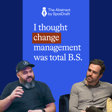
Mapping Your Career in Law: Akshay Verma’s Blueprint for Success
What do companies and clients really want from lawyers? How can you align your career with your values while pursuing your ambitions? What makes a world-class legal operations team?
In the fourth episode of The Abstract, we sit down with the brilliant Akshay Verma, Head of Legal Operations at Coinbase, as he tackles these burning questions and more. Drawing from his extensive two-decade journey, Akshay Verma shares a wealth of wisdom — from his early days practicing environmental law at law firms to leading in-house legal ops teams for companies at various stages and scales.
You’ll get the chance to peek into Akshay’s Critical Lawyering Skills course at Santa Clara University School of Law, and listen as he dives deep into topics like charting your path after law school, navigating career transitions, and finding meaningful employment. He also offers advice to companies hiring early-career legal professionals on how to stay competitive and attract top talent.
Topics:
Introduction – 00:00
Navigating career transitions in law, pt.1 – 1:11
Going in-house and becoming a business counsel – 4:22
The evolution of the legal ops role – 9:02
Navigating career transitions in law, pt.2 – 10:26
Heading legal operations at Meta & Coinbase – 11:35
Leveraging job interviews to lay down the roadmap – 13:40
Akshay’s background in teaching at law school – 15:57
Critical lawyering skills that law school doesn’t teach – 18:05
Integrating your values into career decisions – 20:33
What companies and clients want from lawyers – 25:42
Attracting top legal talent amid changing priorities – 29:14
How legal and legal ops is changing – 31:31
Connect with us:
Akshay Verma - https://www.linkedin.com/in/akshay-verma-esq/
Tyler Finn - https://www.linkedin.com/in/tylerhfinn
SpotDraft - https://www.linkedin.com/company/spotdraft
SpotDraft is a leading CLM platform that solves your end-to-end contract management issues. Visit https://www.spotdraft.com/ to learn more.



















